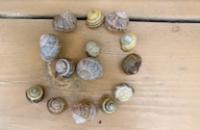
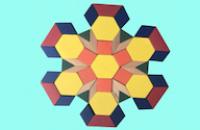
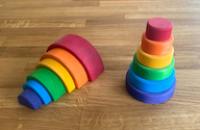
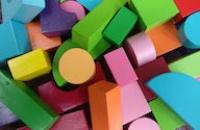
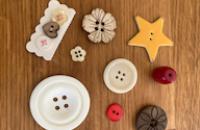
Children often enjoy creating pictures from a variety of coloured shapes.
Adults could offer them a picture frame and shapes, and encourage them to build a picture, talking about the shapes and patterns that they make.
The Activity
The adult works with a group of children around them. Using a variety of card shapes, they talk to the children to find out where on the A3 sheet to place the shapes in order to create a picture. Once the pieces have been agreed they can be pasted in position along with the frame.
Encouraging mathematical thinking and reasoning:
Describing
Which shape would you like to use?
What can you see in the picture? How is it similar to/different from ...?
Is the picture finished? Are you ready to put the frame round it?
Tell me about the shape/pattern.
How many triangles/circles/squares/rectangles are there in your picture?
Reasoning
Why do you want it to go here?
Opening Out
What if we made another ... here?
What will happen if you take away that shape? Can you make another one like it here?
What could you add to your picture to make ...?
Recording
Where should we put it? What are you making?
The Mathematical Journey
Relationship between shapes:
- making connections between the mathematical shapes they are offered and the world around them as they create the picture
- developing mathematical language to describe the shapes rather than describing them only by colour which is often the most obvious attribute to children
Properties of shapes:
- using everyday language such as curved, pointy, straight, wiggly, then progressing to using the mathematical names of the shapes such as circle, square, rectangle, triangle, oblong, etc.
Position and spatial properties:
- using positional language such as above, below, beside, on top of, underneath, left, right, in front, behind, etc.
Development and Variation

Children could:
- Make pictures as an independent activity with A4 sized frames.
- Create junk models from packaging to explore 3D shapes and the language associated with them.
- Paint and draw shapes.
- Create specific images from sets of shapes such as a house, a cat, a dog, a boat, etc.
- Play with tangram pieces to create pictures.
- Feel shapes in a bag and try to identify them.
Resources
- Thin card or foam shapes (a selection of triangles, rectangles, semicircles, etc.)
- A3 sheet of coloured thin card.
- A (narrow) card frame that will go around the A3 sheet to create a 'picture frame'.
Optional:
- Printed sheet of shapes and frames in different sizes.
- A camera to take photos of children's creations.
Download a PDF of this resource.

